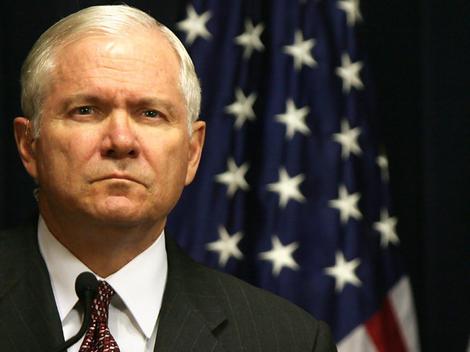US defence chief warns against new arms race in Asia
 Singapore - The United States would not accept North Korea as a nuclear weapons state, US Defence Secretary Robert Gates said Saturday while warning that Pyongyang's nuclear and missile tests might lead to a new arms race in Asia.
Singapore - The United States would not accept North Korea as a nuclear weapons state, US Defence Secretary Robert Gates said Saturday while warning that Pyongyang's nuclear and missile tests might lead to a new arms race in Asia.
"Our goal is complete and verifiable denuclearization of the Korean Peninsula," Gates told participants at a summit on Asian defence and secrurity in Singapore.
North Korea's sabre rattling "poses the potential for a kind of an arms race in the region," Gates said.
"We will not stand by idly as North Korea builds the capability to wreak destruction on any target in Asia - or on us," he added.
"We unequivocally reaffirm our commitment to the defence of our allies in the region," Gates said.
The United States and its partners were open to dialogue with the impoverished, isolated Stalinist country but would not bend to pressure, he added.
"At the end of the day, the choice to continue as a destitute, international pariah or chart a new course is North Korea's alone to make," he said. "The world is waiting."
The countries involved in the six-party talks on North Korea's nuclear programme - the United States, China, Japan, Russia, and North and South Korea - had "to think freshly about their next step," Gates said after North Korea on Monday conducted its second nuclear test.
Gates assured defence ministers and other security policymakers from 27 countries gathered at the 2009 Shangri-La Dialogue that the United States had an enduring role in Asia but that its government would like to see more cooperation among US allies and partners in the region.
"This does not mean any weakening of our bilateral ties but rather enhancing security by adding to them multilateral cooperation," Gates said.
Gates stressed that security today encompassed far more than military concerns, citing piracy, ethnic strife, poverty, climate change and terrorism as examples.
Regarding challenges in Asia, the US defence minister called for more multilateral efforts to establish a sustainable government in Afghanistan.
"The challenge in Afghanistan is so complex and so untraditional, that it can only be met by all of us working in concert," he said.
The US defence minister also called for "a real change" in military-ruled Myanmar; the release of its political prisoners, including opposition leader Aung San Suu Kyi; and a "meaningful dialogue between the junta and the opposition."
On the relationship between the United States and China, Gates said it was essential for both countries to cooperate and be transparent with each other and the rest of the world about strategic goals, political intentions and military developments.
The United States was strengthening ties with friends like Australia, the Philippines and Indonesia and looking "to forge new partnerships in places long disregarded," Gates said, giving Cambodia as an example.
He noted that relations between India and the United States had reached new levels. "In coming years, we look to India to be a partner and net provider of security in the Indian Ocean and beyond," Gates said.
The top US civilian defence official was also scheduled to meet defence ministers from several countries, including Japan and South Korea, in Singapore.
The three-day Shangri-La Dialogue, organized by the non-governmental, London-based International Institute for Strategic Studies, would conclude Sunday. (dpa)